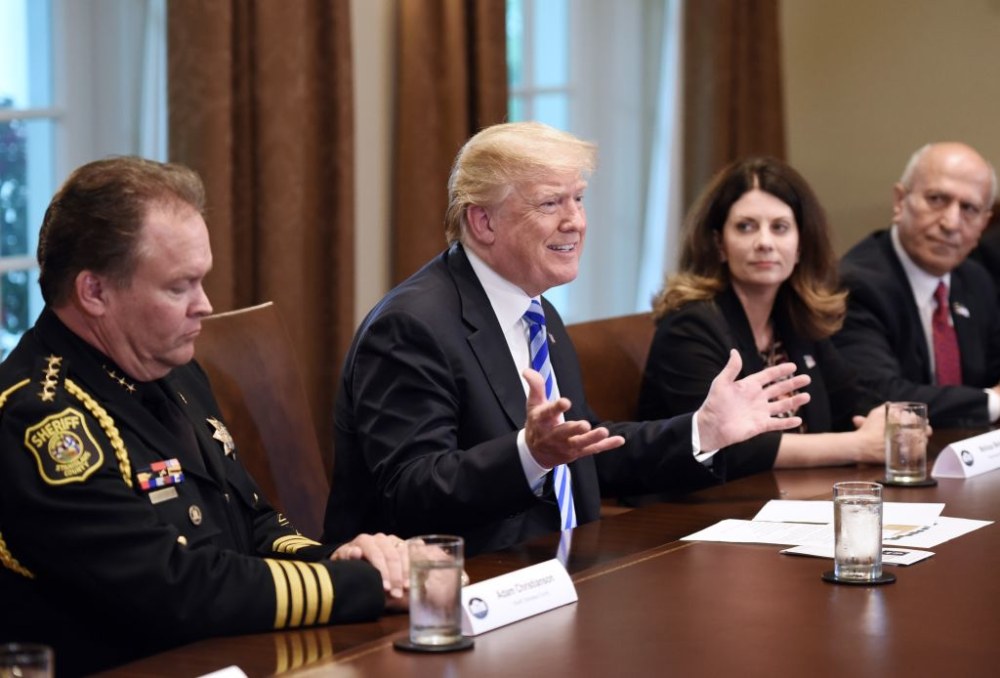
In the never-ending wake of the contested presidential election of 2020, the House Select Committee investigating the January 6th attack on the capitol subpoenaed self-described “activist law professor” John Eastman, who represented President Trump in litigation following the election. Eastman filed a complaint in response, arguing that the Committee was improperly acting in a law enforcement capacity rather than a legislative one. He also claimed that attorney-client privilege protected the documents at issue—a favorite argument among those connected to Trump.
On March 28, California federal district judge David Carter rejected those arguments as applied to most of the documents Eastman sought to protect. And in the process, he concluded it was “more likely than not” that President Trump committed felony obstruction in his efforts to overturn the 2020 election.
Read Judge Carter’s full opinion and thousands more with a free trial of Westlaw Edge.
Former Law School Dean Gets Involved in Overturning Election
The documents and emails that the House Committee sought outlined legal theories under which former Vice President Mike Pence could reject, or at least delay, the count of electoral votes. In the final weeks of 2020, Eastman wrote a now public two-page memo proposing that Pence (then still in office) refuse to count electoral votes from seven states. Essentially, he argued that Pence had the power to ensure President Trump’s re-election, regardless of the popular or electoral vote counts.
However, when the Vice President’s counsel and Chief of Staff Mark Meadows met with Eastman on January 4, Eastman backed down significantly. He conceded that his argument was “contrary to consistent historical practice” and “would likely be unanimously rejected by the Supreme Court” for violating the Electoral Count Act.
When crowds gathered on January 6 to protest the lawful transition of power, Trump’s former attorney, Rudy Giuliani, and others continued to claim that massive voter fraud had compromised the 2020 election. Eastman addressed the crowd:
“We no longer live in a self-governing republic if we can’t get the answer to this question. This is bigger than President Trump. It is a very essence of our republican form of government…and anybody that is not willing to stand up to do it, does not deserve to be in office.”
It wasn’t long before hundreds of protestors stormed the capitol building. As congressmen and staff fled, Pence’s attorney, Greg Jacob, emailed Eastman, saying, “thanks to your bullshit, we are now under siege.”
Attorney-Client Privilege and Work Product Doctrines Provide Some Protection
Eastman claimed that attorney-client privilege protected nine of the 111 documents requested by the Select Committee. He further argued that all 111 documents requested constituted “protected work product,” a doctrine that protects documents prepared in anticipation of litigation.
The Ninth Circuit has established an eight-part test to determine whether the privilege applies. The party asserting attorney-client privilege must establish both the relationship of the two individuals and the privileged nature of the particular communication. Communications between an attorney and a client are only privileged if they are intended to be kept confidential and not publicly disclosed.
On March 28, Judge David Carter ruled that the attorney-client relationship did exist between Eastman and President Trump. But, he found most documents were unprotected either because they were later publicly disclosed or because they were not prepared in anticipation of litigation. Instead, they were “consistent with the memo’s plan to proceed without judicial involvement.”
Judge Carter examined the remaining eleven documents under the “crime-fraud” exception, which is where things get really interesting. Where clients consult an attorney for advice that will help them commit a crime or fraud, and communications are “sufficiently related to” and made in furtherance of the crime, attorney-client privilege and work product doctrines do not apply.
Through this analysis, Judge Carter ruled the actions of President Trump and Eastman “more likely than not” constituted criminal acts—specifically, attempts to obstruct an official proceeding and conspiracy to defraud the United States by interfering with the election process.
Nine of the eleven documents Judge Carter examined under the crime-fraud exception were emails or attachments relating to active lawsuits. Although those lawsuits dealt with claims of election fraud, Judge Carter held that they did not “further” any crimes and therefore were protected. An additional email discussed Pence’s refusal to reject election results but did not further any plans to thwart a free and fair election. It, too, will remain confidential.
The final document is an email chain forwarded to Eastman with a memo recommending that Pence reject electors from contested states. In assessing the memo, Judge Carter wrote:
“This may have been the first time members of President Trump’s team transformed a legal interpretation of the Electoral Count Act into a day-by-day plan of action. The draft memo pushed a strategy that knowingly violated the Electoral Count Act, and Dr. Eastman’s later memos closely track its analysis and proposal.”
Because the memo in this email chain “likely furthered the crimes of obstruction of an official proceeding and conspiracy to defraud the United States,” the judge ordered it to be disclosed.
It might be time to get our popcorn ready.
